WhatsApp API Pricing Made Simple for Businesses
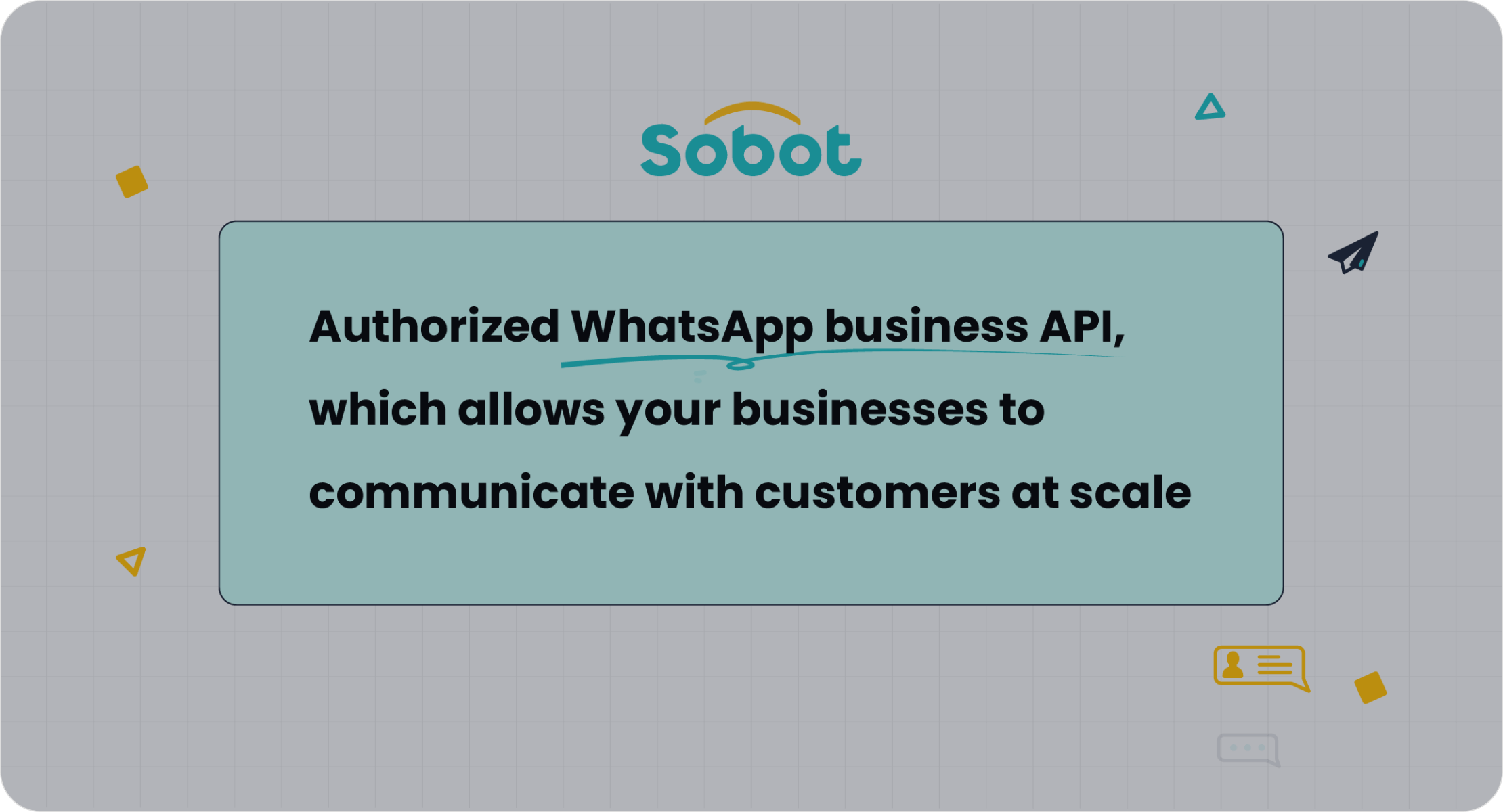
Understanding the pricing of the WhatsApp API can feel overwhelming at first. The conversation-based model, which charges for each 24-hour interaction window, often leaves businesses puzzled about how to manage their costs effectively. However, with the right approach, you can simplify this process and make informed decisions. By focusing on key factors like regional pricing variations and conversation types, businesses can unlock the full potential of this tool. Sobot’s WhatsApp API pricing solutions, for instance, offer features like bulk messaging and smart chat routing, helping you optimize both your communication strategy and your budget.
WhatsApp API Pricing Basics: Understanding the Model
WhatsApp's Conversation-Based Pricing Explained
What is conversation-based pricing, and how does it work?
WhatsApp Business API uses a conversation-based pricing model, which means you pay for each 24-hour conversation window instead of individual messages. This approach simplifies cost management by grouping all interactions within a day into a single charge. Whether you send one message or ten during this window, the cost remains the same. This structure encourages businesses to focus on meaningful conversations rather than worrying about individual message pricing. For example, if a customer reaches out with a query and you respond within the same 24-hour window, it counts as one conversation.
Billing structure for 24-hour conversation windows
The billing structure revolves around two types of conversations: user-initiated and business-initiated. A user-initiated conversation starts when a customer sends the first message, while a business-initiated one begins when you reach out to the customer. Each type has its own cost per conversation. Additionally, WhatsApp offers the first 1,000 conversations free every month, giving businesses a chance to explore the platform without immediate financial commitment.
Types of Conversations and Their Costs
User-initiated vs. business-initiated conversations
User-initiated conversations occur when customers contact you first. These are often related to support or inquiries. Business-initiated conversations, on the other hand, happen when you send the first message, such as a promotional offer or a reminder. The cost per conversation varies between these two types. For instance, user-initiated conversations generally cost less because they are customer-driven, while business-initiated ones may have higher rates due to their proactive nature.
Examples of how conversation types impact costs
Imagine a customer asks about your product availability. If you respond within the 24-hour window, it counts as a user-initiated conversation. Now, consider sending a follow-up message after the window closes. This action starts a new business-initiated conversation, adding to your costs. By understanding these distinctions, you can plan your communication strategy to minimize unnecessary expenses.
Regional Pricing Variations in WhatsApp Business Pricing
How regional rates differ and why they matter
WhatsApp Business API pricing varies across regions, reflecting differences in local economies and market conditions. For example, the cost per conversation in India is significantly lower than in the United States. Businesses operating in multiple regions must account for these variations to manage their budgets effectively. Regional pricing structures also influence how you allocate resources for customer engagement in different markets.
Examples of pricing differences across regions
In India, marketing conversations cost ₹0.78 per conversation, while utility conversations cost ₹0.11. In contrast, rates in Western countries can be several times higher. These differences highlight the importance of tailoring your communication strategy to regional WhatsApp conversation rates. Tools like Sobot’s WhatsApp Business API can help you navigate these complexities by providing detailed analytics and cost optimization features.
Key Factors That Influence WhatsApp Business API Costs
Understanding the factors affecting the cost of the WhatsApp Business API is essential for managing your budget effectively. Let’s break down the key elements that influence pricing and how you can optimize your expenses.
Message Volume and Frequency
How high message volumes affect overall costs
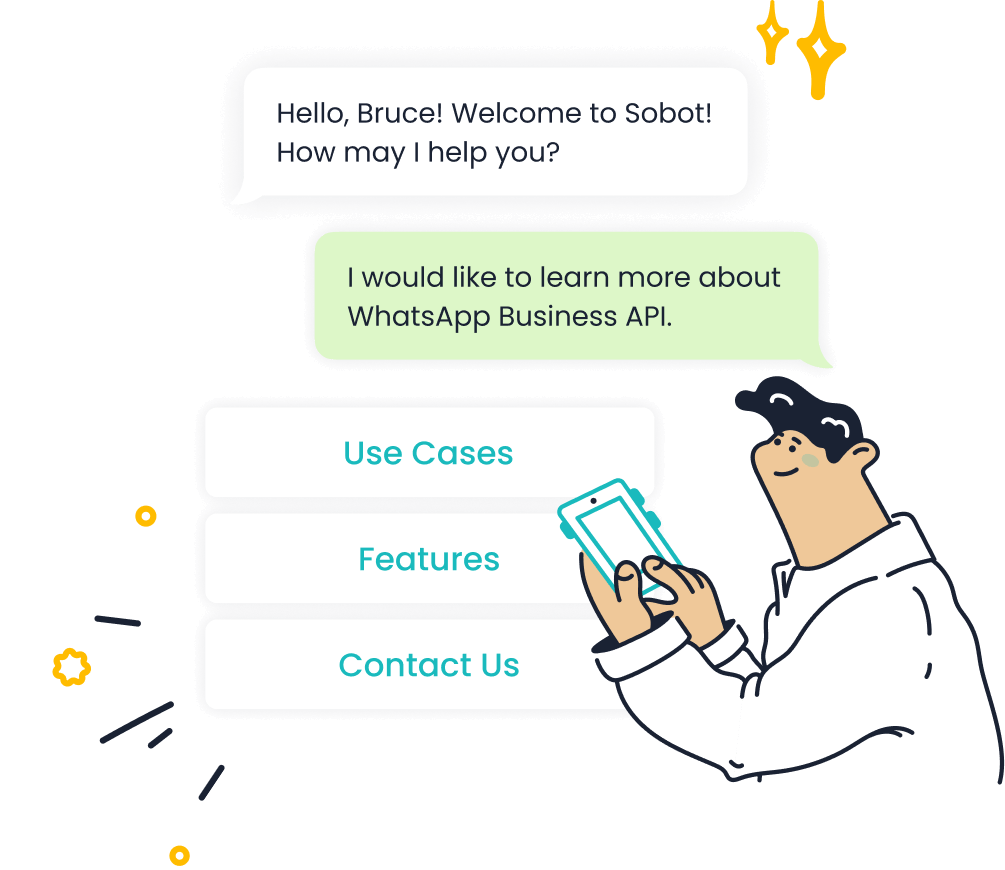
The number of messages you send directly impacts your monthly service fees. Businesses handling high message volumes often see increased costs, as each 24-hour conversation window incurs a charge. For instance, if your business sends thousands of messages daily, the cumulative charges can add up quickly. However, tools like Sobot’s WhatsApp Business API offer features such as bulk messaging and automation, which help you manage these volumes efficiently while keeping your fees under control.
Frequency of conversations and its impact on pricing
Frequent conversations with customers can lead to higher monthly service fees, especially if they extend beyond the initial 24-hour window. For example, sending follow-up messages after the window closes starts a new conversation, adding to your costs. To minimize this, you can use Sobot’s smart chat routing and chatbot features to resolve queries within the same window, reducing unnecessary expenses.
Business Use Cases and Their Cost Implications
Customer support use cases and associated costs
Using the WhatsApp Business API for customer support often involves user-initiated conversations. These are generally more affordable compared to business-initiated ones. For example, when a customer contacts you for assistance, the conversation cost is lower. Sobot’s chatbot feature can handle common queries automatically, helping you reduce fees while maintaining excellent service.
Marketing and promotional use cases: ROI vs. expenses
Marketing campaigns typically involve business-initiated conversations, which come at a higher price. However, the return on investment (ROI) can justify the expense. For instance, sending promotional offers or reminders through the WhatsApp Business API can drive customer engagement and sales. Sobot’s workflow automation and data analytics tools allow you to track campaign performance, ensuring your marketing efforts deliver maximum ROI while keeping costs in check.
Integration and Third-Party Provider Fees
The role of providers like Sobot in managing costs
Third-party providers play a crucial role in connecting and managing the WhatsApp Business API. Providers like Sobot not only facilitate the setup but also offer value-added services such as automation, analytics, and integration with CRM systems. These features help you optimize your communication strategy and reduce operational costs.
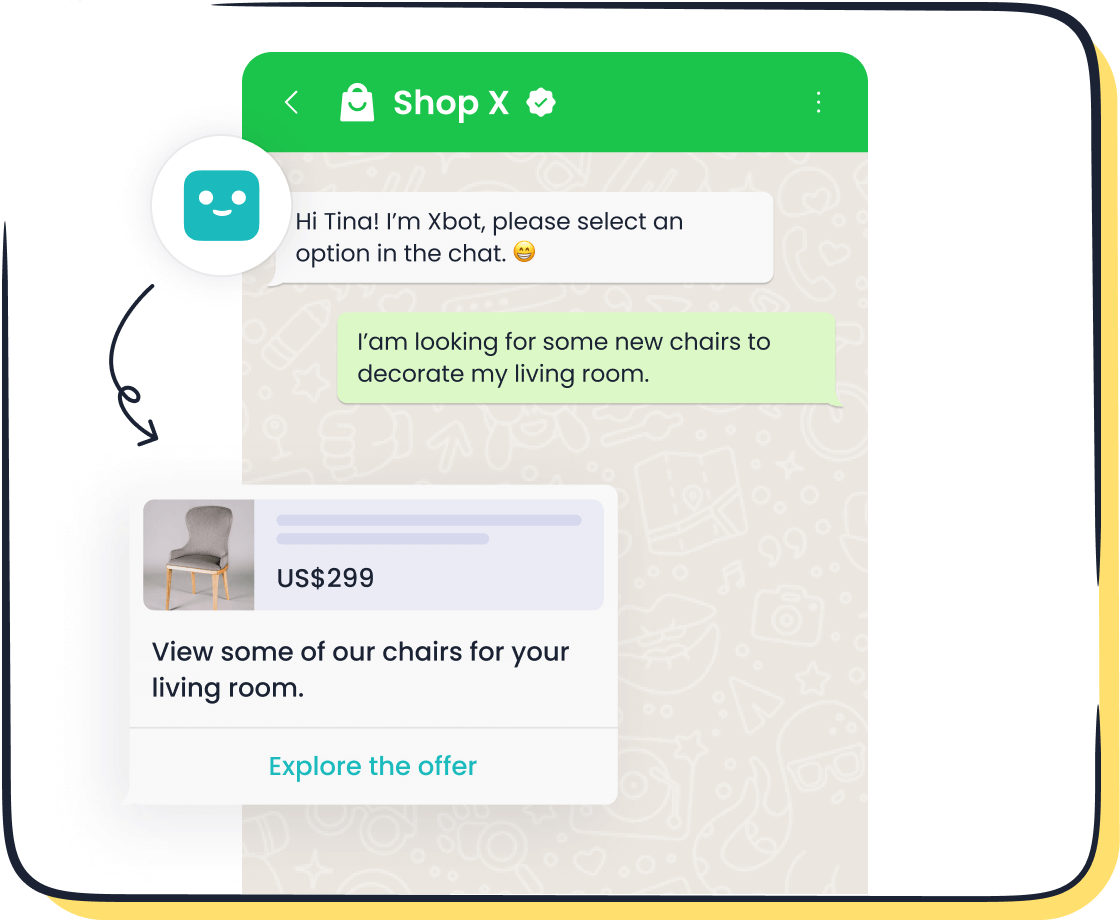
Additional fees to consider when using Sobot's WhatsApp API
While the WhatsApp Business API itself is free, you’ll need to account for monthly service fees charged by providers. These may include installation, configuration, and maintenance costs. Sobot offers transparent pricing with no hidden charges, ensuring you get the best value for your investment. Additionally, Sobot’s tools help you monitor and control your fees, making it easier to stay within your budget.
How to Calculate WhatsApp Business API Costs Step-by-Step
Calculating the costs of using the WhatsApp Business API doesn’t have to be complicated. By breaking it into manageable steps, you can estimate your expenses accurately and plan your budget effectively. Let’s dive into the process.
Estimating the Number of Conversations
Projecting user-initiated and business-initiated conversations
Start by identifying how many conversations your business handles daily. Separate these into user-initiated and business-initiated categories. For example, if customers frequently contact you for support, those are user-initiated conversations. On the other hand, sending promotional messages or reminders falls under business-initiated conversations. Knowing this distinction helps you predict your monthly conversation volume and understand how it impacts your pricing.
Tools and methods for accurate estimation
Use tools like customer interaction logs or CRM systems to analyze past data. These tools provide insights into your average conversation count and type. Sobot’s WhatsApp Business API offers built-in analytics that simplifies this process. With features like conversation tracking and analysis and reporting, you can make precise projections without guesswork.
Applying Regional Rates to Your Business
Using WhatsApp's pricing tables for regional calculations
WhatsApp provides detailed pricing tables that outline conversation costs for different regions. For instance, businesses in India may pay significantly less per conversation compared to those in the United States. Refer to these tables to calculate your costs based on where your customers are located. This step ensures you account for regional variations in pricing.
Adjusting for multi-region operations with Sobot's tools
If your business operates in multiple regions, managing costs can get tricky. Sobot’s WhatsApp Business API simplifies this with tools that adjust for regional pricing automatically. For example, if you serve customers in both Asia and Europe, Sobot’s platform helps you allocate resources efficiently while keeping fees under control. This feature is especially useful for global businesses aiming to optimize their communication budgets.
Factoring in Provider Fees and Value-Added Services
Understanding Sobot's pricing structure for WhatsApp API
When using the WhatsApp Business API, you’ll encounter provider fees in addition to WhatsApp’s conversation-based charges. Sobot offers a transparent pricing structure with no hidden costs. Their services include setup, maintenance, and advanced features like workflow automation and bulk messaging. These value-added services enhance your communication strategy while keeping your expenses predictable.
Comparing provider fees to find the best fit for your needs
Not all providers offer the same level of service or pricing transparency. Compare fees and features to ensure you’re getting the best value. Sobot stands out by combining competitive pricing with robust tools like data analytics and chatbot integration. These features not only help you manage costs but also improve customer engagement and operational efficiency.
Cost Optimization Tips for WhatsApp Business API Users
Optimizing your WhatsApp Business API usage can significantly reduce expenses while improving efficiency. By focusing on smarter workflows, choosing the right provider, and leveraging automation, you can align your communication strategy with your business needs.
Reducing Unnecessary Conversations
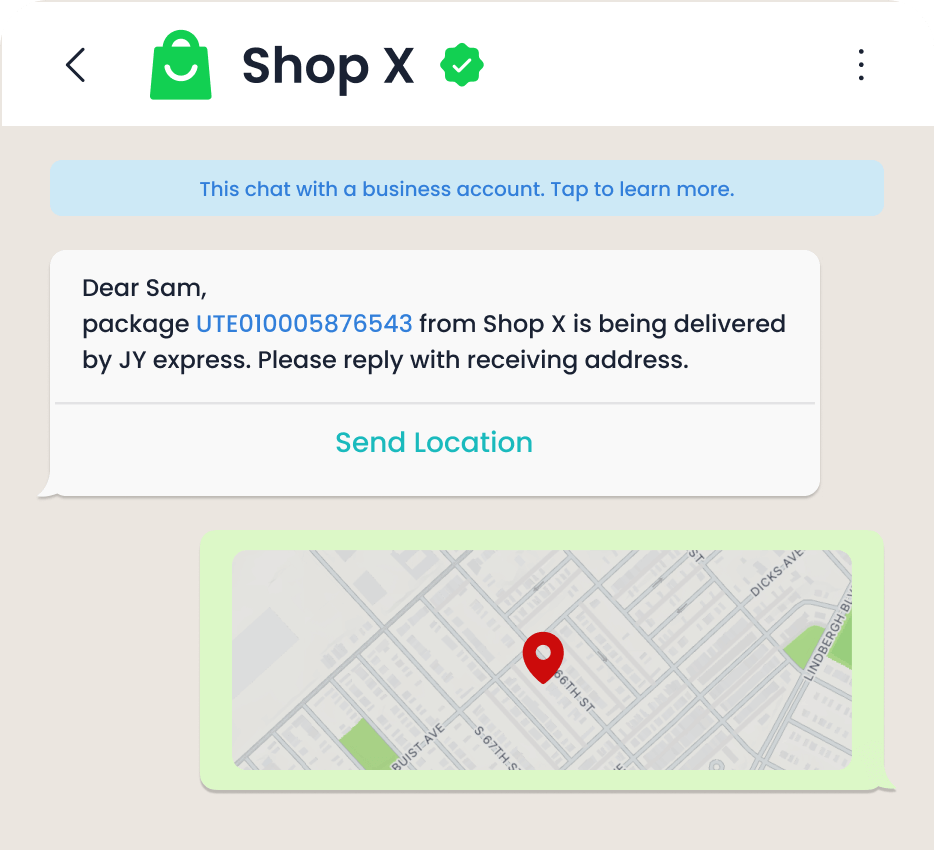
Streamlining customer support workflows with Sobot's chatbot
Unnecessary conversations often inflate costs. Sobot’s chatbot streamlines customer support by handling repetitive queries automatically. For example, customers asking about order status or store hours can receive instant responses without involving a live agent. This reduces the number of user-initiated conversations that require manual intervention, keeping your fees under control. J&T Express, for instance, used Sobot’s chatbot to automate delivery confirmations, cutting operational costs by 50% while boosting efficiency.
Using FAQs and self-service options to minimize costs
FAQs and self-service tools empower customers to find answers independently. By integrating these options into your WhatsApp Business API, you can reduce the frequency of conversations that require human assistance. Sobot’s advanced features of WhatsApp Business API include customizable FAQ templates and self-service portals, which help businesses lower fees while enhancing the customer journey. This approach not only saves money but also improves customer satisfaction by providing quick solutions.
Choosing the Right Provider for WhatsApp API Management
Why Sobot is a cost-effective choice for businesses
Selecting the right provider is crucial for managing pricing effectively. Sobot stands out as a cost-effective option, offering transparent pricing with no hidden fees. Its advanced features of WhatsApp Business API, such as message automation and data analytics, help businesses optimize their communication strategies. Companies like Opay have reported significant improvements in efficiency and customer satisfaction by using Sobot’s tools, proving its value for businesses aiming to reduce costs.
Comparing providers for better cost management
Not all providers offer the same level of service or pricing transparency. When comparing options, consider factors like setup fees, maintenance costs, and additional features. Sobot provides a comprehensive solution with competitive pricing, making it easier for businesses to manage their WhatsApp API pricing. Its tools, such as smart chat routing and bulk messaging, ensure you get the best value while maintaining high conversion rates.
Leveraging Automation and Templates
How Sobot's automation features reduce operational costs
Automation is a game-changer for businesses using the WhatsApp Business API. Sobot’s automation tools handle tasks like sending reminders, confirming orders, and routing messages to the right agents. These features reduce operational costs by minimizing manual work. J&T Express leveraged Sobot’s automation to improve delivery accuracy and cut costs by half, showcasing the power of automation in optimizing the customer journey.
Using message templates to optimize marketing expenses
Message templates simplify marketing campaigns and reduce expenses. With Sobot’s WhatsApp Business API, you can create pre-approved templates for promotional messages, transactional updates, or reminders. These templates ensure compliance with WhatsApp’s policies while saving time and effort. By using templates strategically, you can lower fees associated with business-initiated conversations and maximize your marketing ROI.
Real-World Example: How J&T Express Reduced Costs with Sobot
Challenges Faced by J&T Express
Inefficiencies in customer communication and delivery processes
J&T Express, a global logistics leader, struggled with inefficiencies in its customer communication. Frequent changes in delivery details caused delays and confusion. Customers often provided incomplete or inaccurate addresses, which slowed down operations. These issues made it difficult to maintain smooth communication with customers, especially in regions like Southeast Asia and the Middle East. The lack of real-time updates further complicated delivery processes, leading to missed opportunities for timely resolutions.
High operational costs due to manual workflows
Manual workflows added to J&T Express’s challenges. Couriers relied on traditional methods to confirm delivery details, which consumed time and resources. Cash-on-delivery collections also became a bottleneck, increasing operational costs. These inefficiencies highlighted the need for a streamlined solution to reduce manual intervention and improve overall productivity.
Sobot's WhatsApp Solution for J&T Express
Implementation of automated messaging and smart routing
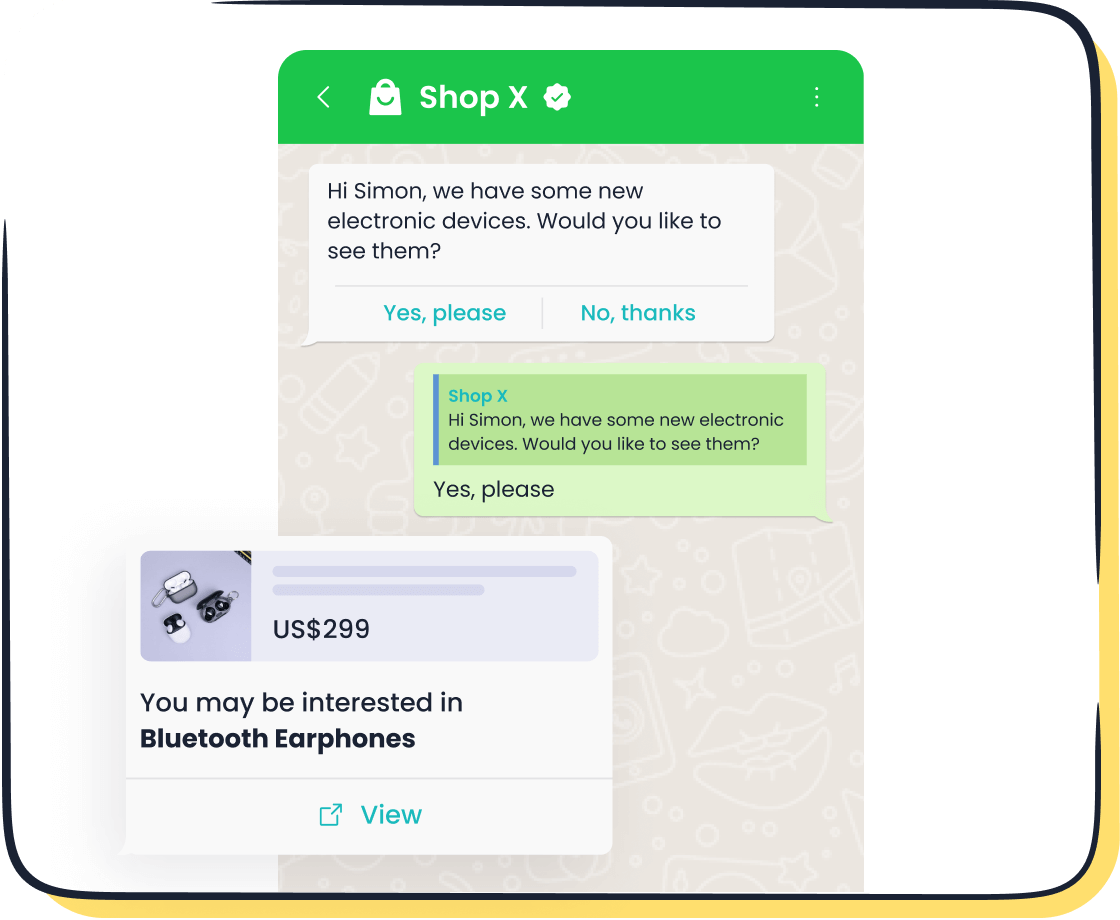
Sobot introduced its WhatsApp Business API to transform J&T Express’s communication strategy. Automated messaging replaced manual processes, enabling instant responses to customer inquiries. Smart routing ensured that messages reached the right courier or department without delays. For instance, order confirmations were automated, reducing the workload on customer service teams. This automation saved time and ensured consistent communication, creating a seamless experience for both customers and employees.
Integration with WhatsApp for improved delivery accuracy
Sobot’s integration of the WhatsApp Business API allowed J&T Express to centralize its communication channels. Verified WhatsApp profiles enhanced trust, while real-time messaging enabled faster responses. Couriers used WhatsApp to confirm delivery addresses, leveraging tools like Google Maps for accuracy. This integration not only improved delivery success rates but also reduced errors caused by outdated or incorrect information.
Results Achieved by J&T Express
35% increase in delivery rates and 50% cost reduction
The results were remarkable. J&T Express saw a 35% increase in delivery rates, thanks to automated workflows and accurate address confirmations. Operational costs dropped by 50%, as automation reduced the need for manual interventions. These improvements demonstrated how the WhatsApp Business API could optimize logistics operations while cutting expenses.
Enhanced customer satisfaction and operational efficiency
Customer satisfaction soared as J&T Express provided faster and more reliable communication. Real-time updates kept customers informed, reducing complaints and improving trust. Operational efficiency also improved significantly, allowing the company to handle higher volumes without additional resources. This success story highlights how Sobot’s WhatsApp Business API can revolutionize business communication, delivering measurable results.
Understanding WhatsApp API pricing is essential for managing your communication expenses effectively. By analyzing conversation types, regional rates, and provider fees, you can make informed decisions that align with your business goals. Tools like the WhatsApp Business API simplify this process, offering features such as automation and analytics to optimize your strategy. Partnering with a trusted provider like Sobot ensures seamless integration and cost efficiency. For example, J&T Express achieved a 50% cost reduction by leveraging Sobot’s solutions. With the right approach, you can enhance customer engagement while keeping costs under control.
FAQ
What is WhatsApp Business API pricing in India?
WhatsApp Business API pricing in India depends on the type of conversation. For marketing conversations, the cost is ₹0.78 per conversation. Utility conversations, such as transactional updates, cost ₹0.11 per conversation. Additionally, WhatsApp offers 1,000 free conversations every month, giving businesses a chance to explore the platform without immediate costs. This pricing structure makes it easier for businesses in India to manage their communication budgets effectively.
How much does WhatsApp Business API cost globally?
The cost of the WhatsApp Business API varies by region and conversation type. For instance, user-initiated conversations often cost less than business-initiated ones. Rates also differ significantly between countries. For example, businesses in India pay much lower rates compared to those in Western countries. To calculate your costs accurately, you can use tools like Sobot’s WhatsApp Business API, which provides detailed analytics and regional pricing insights.
What is the difference between user-initiated and business-initiated conversations?
User-initiated conversations start when a customer sends the first message, often for support or inquiries. These conversations usually cost less. Business-initiated conversations occur when you send the first message, such as a promotional offer or reminder. These tend to have higher rates. Understanding this distinction helps you plan your communication strategy and control costs effectively.
How can I calculate my WhatsApp Business API costs?
To calculate your costs, start by estimating the number of user-initiated and business-initiated conversations your business handles monthly. Then, apply the regional rates provided by WhatsApp. Don’t forget to factor in provider fees for services like setup and maintenance. Sobot’s WhatsApp Business API simplifies this process with built-in analytics and cost estimation tools, ensuring you stay within your budget.
Are there any free conversations included with WhatsApp Business API?
Yes, WhatsApp offers 1,000 free conversations every month. These can be either user-initiated or business-initiated. This allowance helps businesses test the platform and manage initial costs. Sobot’s WhatsApp Business API ensures you make the most of these free conversations by optimizing your communication workflows.
What are the additional fees when using a provider like Sobot?
When you use a provider like Sobot, you may encounter fees for setup, configuration, and maintenance. However, Sobot offers transparent pricing with no hidden charges. Their value-added services, such as automation, bulk messaging, and data analytics, enhance your communication strategy while keeping costs predictable.
How does regional pricing impact my WhatsApp Business API costs?
Regional pricing plays a significant role in determining your costs. For example, businesses in India pay much lower rates compared to those in the United States. If your business operates in multiple regions, tools like Sobot’s WhatsApp Business API can help you adjust for these variations automatically, ensuring efficient resource allocation.
Can I use automation to reduce my WhatsApp Business API costs?
Absolutely! Automation can significantly lower your costs by reducing manual intervention. Sobot’s WhatsApp Business API offers features like automated messaging, smart chat routing, and chatbot integration. These tools streamline workflows, resolve queries faster, and minimize unnecessary conversations, helping you save money.
What types of businesses benefit most from WhatsApp Business API?
Businesses across industries, including retail, logistics, and financial services, benefit from the WhatsApp Business API. For example, logistics companies like J&T Express use it to automate delivery confirmations and improve customer communication. Retailers leverage it for marketing campaigns and customer support. Sobot’s WhatsApp Business API caters to diverse needs, making it a versatile solution for businesses of all sizes.
How do I get started with Sobot’s WhatsApp Business API?
Getting started is simple. Visit Sobot’s WhatsApp API page to book a demo or sign up for a free trial. Sobot’s team will guide you through the setup process, ensuring seamless integration with your existing systems. With features like bulk messaging, automation, and analytics, Sobot’s WhatsApp Business API helps you enhance customer engagement and optimize costs.
See Also
Setting Up Batch Messaging For Your WhatsApp Business
The Impact Of WhatsApp Chats On Website Engagement
Reviewing The Best Free Chat Software For Businesses